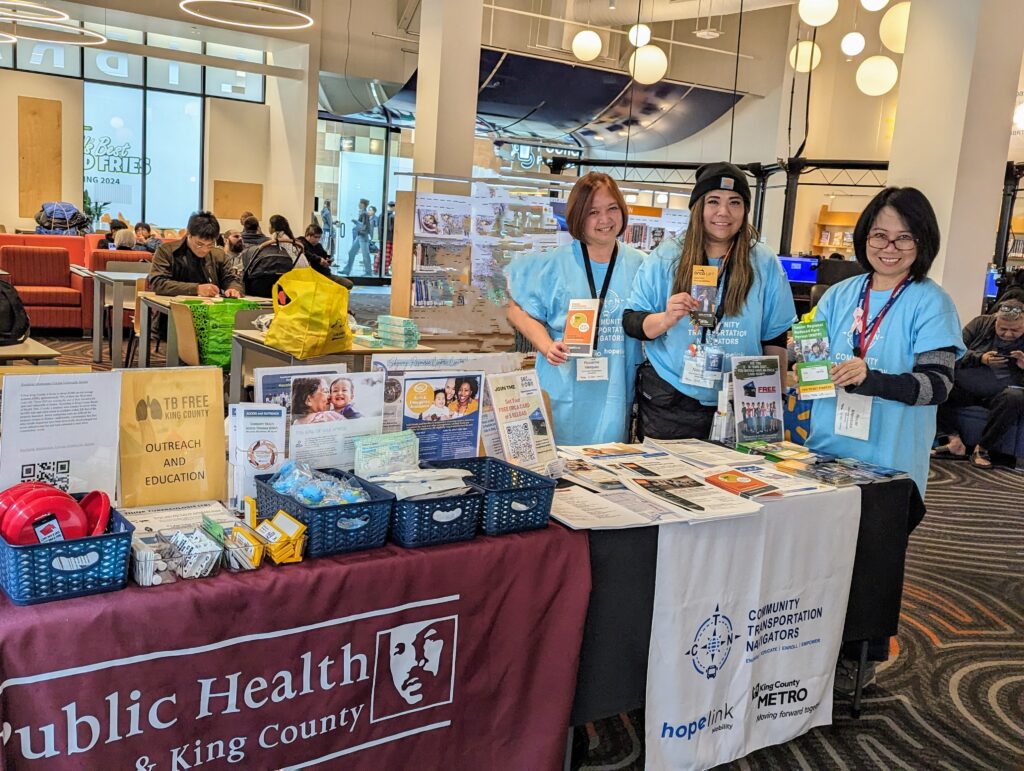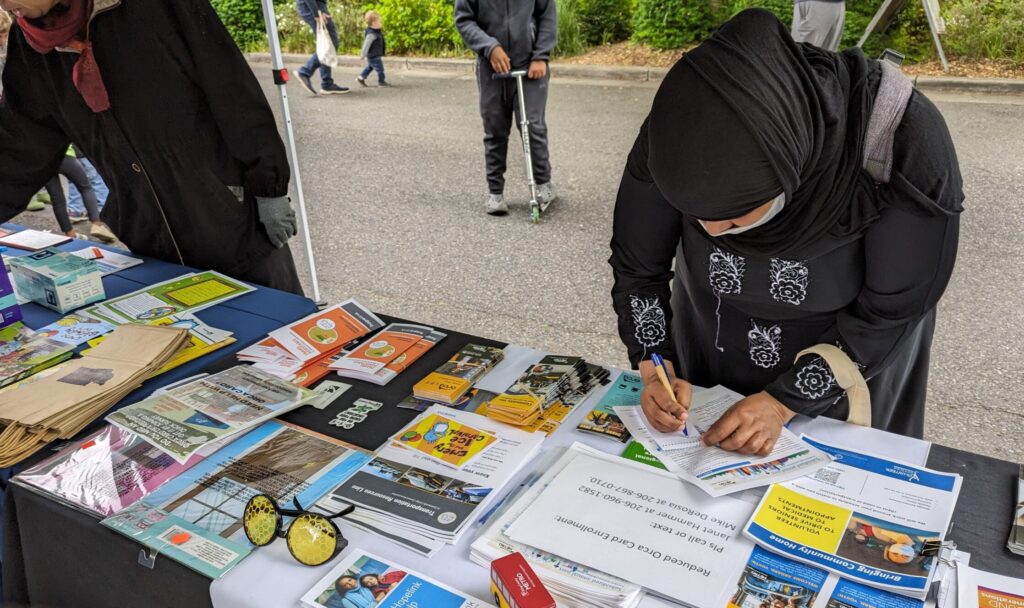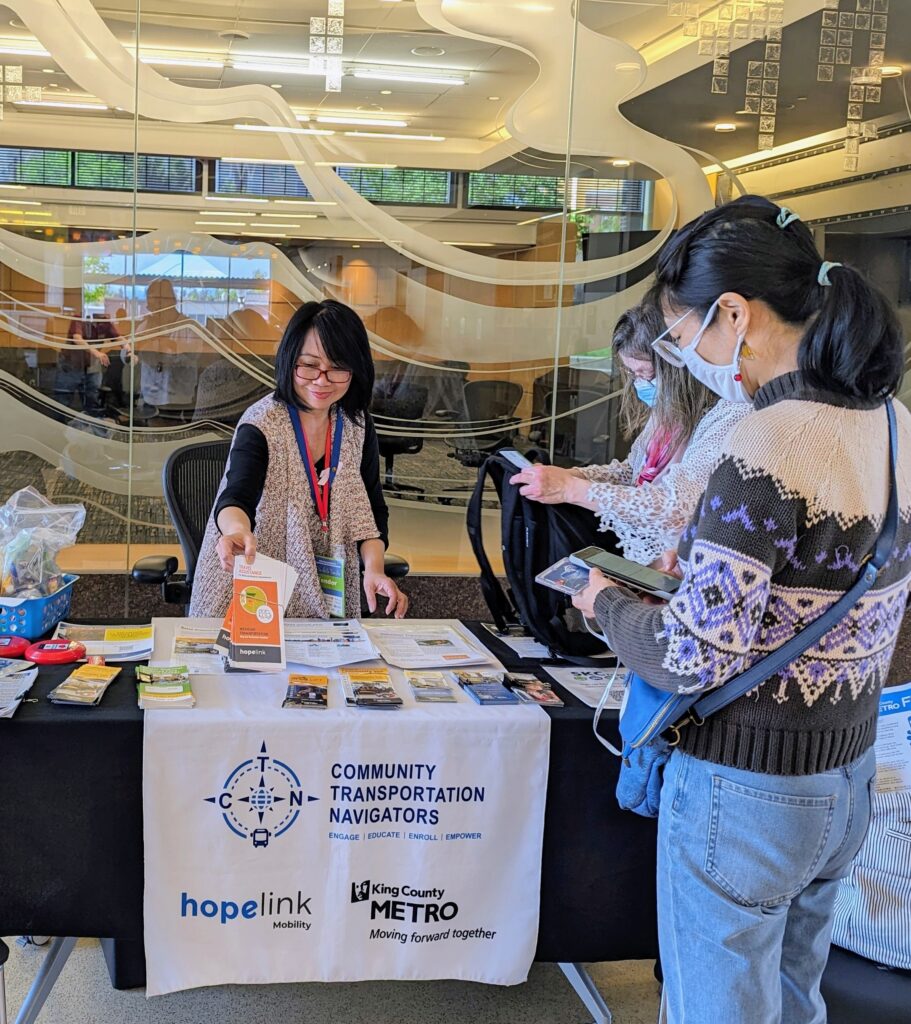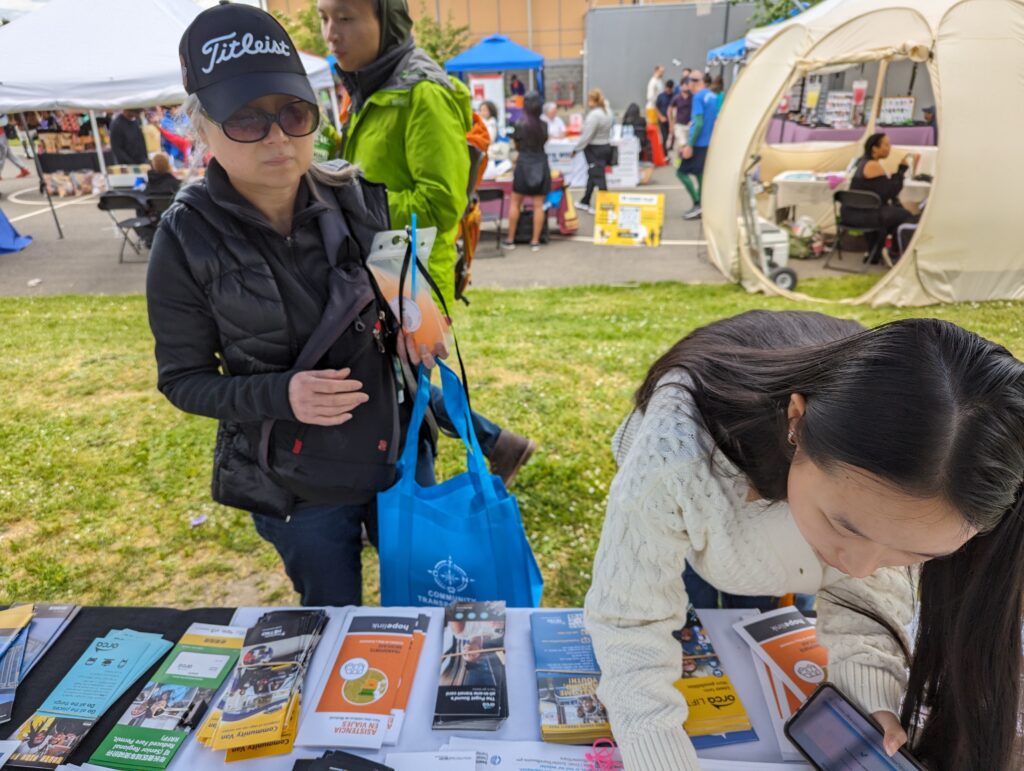Finding Your Way
Community Transportation Navigators Break Transit Barriers

“Imagine being a newly arrived person, and you’re confronted with over 100 unique transportation providers in King County,” said Sara Sisco, Hopelink Senior Manager of Mobility Education & Outreach at Hopelink. “How does one navigate this incredibly complicated system? That’s where the Community Transportation Navigators program comes in.”
Community Transportation Navigators (CTNs) is a peer-to-peer outreach strategy that utilizes members within the community focusing on cultural competence and the reflection of shared lived experiences. “There are a lot of other peer-to-peer models that exist. But there were no peer-to-peer models focused solely on transportation access for communities that are historically impacted by transportation,” said Sara.
In 2018, The King County Mobility Coalition and Hopelink Mobility Management Team received an Inclusive Planning grant to better understand the transportation needs and gaps across King County. Two programs were elevated from that – Community Transportation Navigators and Find a Ride.
Over the next two years, Hopelink conducted research and met with community members to identify how these programs could best serve their needs. This would lead to partnerships and funding opportunities for programmatic growth.

In 2020, King County Metro approached Hopelink with the opportunity to do a pilot program for the Community Transportation Navigators program. Metro’s research identified and focused on engaging with the Afghani, Filipino, and Somali communities. The team found these groups used transit regularly, but paid in cash instead of using ORCA cards, demonstrating a knowledge gap and the need for additional support.
“The Filipino cohort, which is our first cohort, is focused on supporting the Filipino community and the larger immigrant community for King County” says Sandy Phan, Hopelink Community Transportation Navigators Program Manager.
Rocel, a Navigator in the Filipino cohort, immigrated to the U.S. from the Philippines in 1992. “When I hear and listen to the stories and challenges of immigrants starting a new life in America, I can relate to them,” she said. “I love to share my culture in the community, learning, and educating, so I was fortunate enough to be connected with Hopelink back in 2022.”
According to current U.S. Census Data, 29.5% of individuals in King County speak languages other than English at home with 12% of immigrants and refugees using public transportation as their primary mode for commuting to work.

“When many immigrants move to the United States, they don’t have their own personal transportation, so they utilize public transit,” Rocel shared. “Many in the Filipino immigrant communities utilize public transportation for almost every aspect of their lives: looking for a job, taking the kids to school, going to medical and dental appointments, grocery shopping, and other errands.”
Providing critical transportation information to underserved client communities is a top priority for the Community Transportation Navigators. Through the Immigrant and Refugee Needs Assessment, the Hopelink Mobility team identified language barriers and cost as some of the most significant challenges individuals face.
Rocel, a Navigator in the Filipino cohort, enjoys providing folks with resources to connect them to transportation services.
Rocel, a Navigator in the Filipino cohort, enjoys providing folks with resources to connect them to transportation services.
“We utilize tools like Language Line* and translate any requested materials into whatever language needed,” says Sara. “By providing these communities with the translated resources, transportation clients feel empowered and more confident riding public transit,” added Rocel.
Much of Rocel’s outreach efforts focus on educating her community on things like the cost-effective transportation options available to eligible riders for a reduced fee for example. “Many times, I am educating folks on what services they may be eligible for based on their specific situation,” said Rocel. “Many are not aware of that, especially from the immigrant community.”
The second Community Transportation Navigators cohort is dedicated to serving the Health Through Housing (HTH) residents to increase their access to transportation.
King County’s Health Through Housing Initiative supports people experiencing homelessness by repurposing vacant buildings to emergency housing and permanent supportive housing. This cohort provides resources to those experiencing or at risk of long-term homelessness, connecting them to transportation services.
HTH Navigators come to the program with their unique experiences with homelessness, ready to support their peers in improving their access to opportunities with transportation.
“When I first came to Seattle, I experienced homelessness,” shared Cedric, a HTH Community Transportation Navigator. “I worked my way up, going to school, getting a job, and getting my own place. I like to let folks know that if I can do it, they can too.”

“The Health Through Housing and the Filipino cohorts leverage their lived experience and culturally appropriate outreach methods to continue educating communities on what transit opportunities are available to them,” says Sandy.
This summer, the program is launching a third cohort centering the needs of Muslim women. “We know there is a gap, and we know there’s a demand as many Muslim women don’t drive and rely on public transit,” said Sandy.
“We’re so excited about this Muslim cohort. This has been our dream for a while,” said Sara Sisco. “Right now, we have funding for the cultural cohorts until the end of this year, and the health through housing cohorts until the end of next year so I want to secure funds to get us through four or five more years.”
To learn more about the Community Transportation Navigators click here!
*Language Line is an interpretation tool Hopelink uses to communicate with folks in their native language. With over 240+ languages offered; Language Line offers clients the ability to overcome language access barriers. This supports Hopelink’s Community Guidelines in providing a more welcoming and inclusive environment for our clients.
